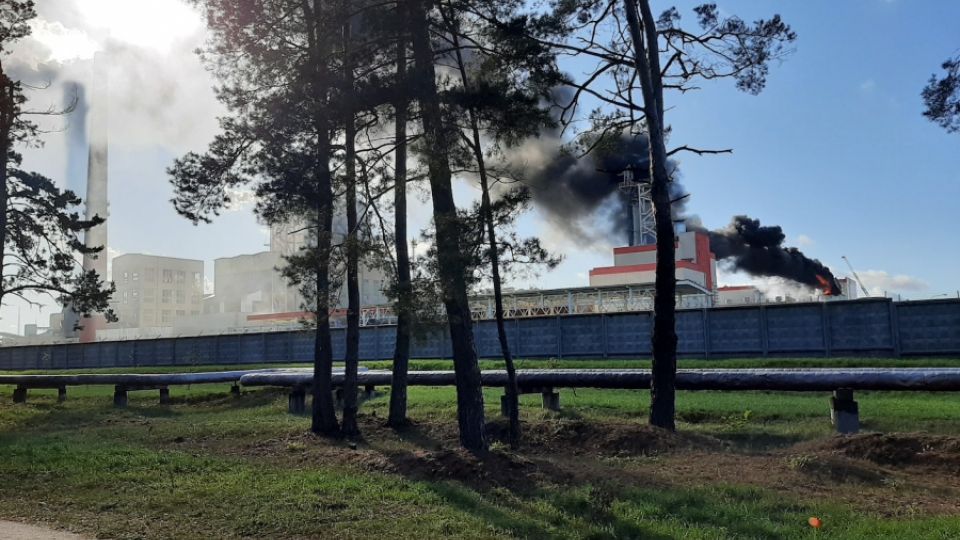Tree-cutting, recycling, and illegal landfill. Those are the main reasons the Belarusians seek out experts from non-governmental environmental organizations. To make it happen, a local NGO, EcoHome, with assistance of a Czech NGO, Arnika, launched the Green Line. The success of the consultation service surpassed expectations of its creators. However, people still do not fully realize that gathering information about a case is not the final step; there is still much work to do in order to solve the issues.
The phone eco-counselling was launched by EcoHome in autumn of 2016. After operating for one year, 636 requests have been sent regarding environmental issues. Each and every one of these requests has been answered individually by our operators, informs Alyena Dubovik.
“People lack reliable information on their rights, administrative competencies, and optimal procedures. At the same time, this shows real interest of the public in the topic of ecology. The phone rings much more often than we expected,” says Dubovik happily when speaking of the number of phone calls.
For the greenery. In July 2016, caller of Lida in Grodno Region reportes on planned development of a vast residential area on the nearby lake shore. Many trees were to be cut down. Soon, a letter was sent to regional executive committee. It turned out, the construction had not recieved the neccesary permits. The project was cancelled right after.
Garbage and Greens
The key topic seem to be waste management and greenery protection. The Belarusians point out non-professional treatment and felling of trees that regularly occurs as a result of urban constructions. The Green Line also recorded many complaints on illegal landfills and the insufficient number of public trash cans and recycling bins. Beside that, people wonder how to deal with different sorts of waste.
According to Marina Dubina from EcoHome, many of these cases are impossible to solve since the cases are intertwined with one another, and it is often too late to step in. “The lack of available cans leads to the use of dumpsters which affects the nearby environment, water, air, and soil quality. Repeatedly, we witness inactivity of competent authorities,” Dubina explains.
"Forgotten" waste. In Orsha, there appears to be materials left on the street long after costruction projects are completed. A concerned citizen turned to city council as well as to the company but no reply has arrived. However, the garbage was gone the day after.
Based on monitoring of more than six hundreds of phone calls, experts have prepared a manual with the goal of helping people to resolve specific issues without requiring them to contact the Green Line in the first place.
Tough task, especially in Belarus
Assistance in launching the service came from Arnika. This Czech environmental organization has been operating similar eco-counselling domestically almost twenty years now.
Trees endangered again. "Trees in front of my house are being cut down!" a woman cried to Green Line operators in May. EcoHome turned to city and municipal representatives of Minsk, and the group created a petition and organized a number of meetings. Their goal was saving some of the trees which were previously slated to be cut down.
“Availability of environment related information is far from acceptable in Belarus. Industrial regions suffer from serious pollution, and in the cities similar problems to our own occur. Until recently, any kind of support of the locals in their struggle to improve the environment was missing,” reports Martin Skalsky, from Arnika, on the uneasy situation in Eastern Europe. “We believe that supporting an active approach of the citizens helps awaken activism in general, and therefore, support might defeat the lack of interest in civic topics and the dismal action by the representatives,” he follows.
The main goal of the eco-counselling is to push people towards being independently active. “People get outraged by some specific problem in their neighbourhood, yet don’t want to act individually. They are afraid to take the responsibility,” Alyena Dubovik says with despair. “Everyone would love to see the evil disappear miraculously, but that’s not possible. However, in many cases people convinced themselves into taking action and have made a huge difference. That might help others doing the same thing,” she concludes.
Be gone, woods! Near to agricultural village of Lyusina the whole forest was planned to be taken away. Majority of local residents suffer from extreme poverty and unemployment. They rely on natural pruducts to sell on markets in order to create an income for themselves. Surprisingly, the devastation was legal. Authorities of Brest and Gantsavich were approached together with the Ministry of Natural Resources. Soon enough, BelSAT, a television channel, got interested. The Ministry of Forestry then decided to preserve the almost twenty thousands acres.







